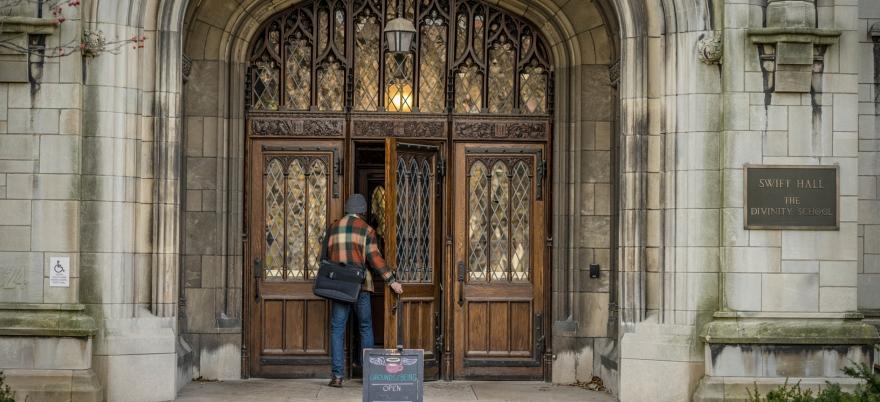The University will cap the number of Ph.D. students in the Humanities and Social Sciences Divisions, the School of Social Service Administration (SSA), and the Divinity School, Provost Daniel Diermeier announced in a Tuesday afternoon e-mail to the University.
The new limits will be imposed along with several additional changes aimed at reducing attrition and shortening students’ time to degree, including increased emphasis on teaching, the University told The Maroon.
The changes are based on recommendations made in the report of the Committee on Graduate Education, which Diermeier’s office published in April. The Committee report showed that half of graduate students at UChicago are unhappy with the state of graduate education, and recommended solutions to a litany of grievances.
The new framework will replace the old funding structure, the Graduate Aid Initiative (GAI), with a new funding structure to standardize funding for the duration of Ph.D. programs. GAI, introduced in 2007, guaranteed five years of funding (a sixth year of funding was recently made available for students in the Humanities Division and Divinity School). Students who needed more time to complete their degrees had to secure other sources of funding.
Under the new system, all students in good academic standing will receive “full tuition coverage, paid health insurance premiums, and funding for the duration of their program at least at the guaranteed stipend level”—which increased from last year’s $30,000 to $31,000, before taxes, for the current academic year.
At the same time that the University is guaranteeing coverage for the duration of students’ degrees, it is putting in place incentives for professors to move students through degree programs more rapidly: notably, by capping the overall size of a program’s graduate population.
Diermeier wrote that “while the previous funding model, GAI, provided critical funding, it did not succeed in shortening time to degree or reducing late attrition. The committee suggested one way to address this would be to ‘fix the overall size of a program’s graduate population.’”
Teaching by Ph.D. students will be structured as mentored teaching experiences, separate from funding. In other words, teaching will no longer be a prerequisite for funding. Faculty in each program will determine the type and number of mentored teaching experiences students undergo in their discipline. The stipend will not vary regardless of whether the student is teaching in a particular year or quarter.
In case you couldn’t tell through the bureaucratic and vague language, these changes are a blatant attempt at union-busting by the University, dressed up as an improvement in funding for a limited number of grads.
— UChicago GSU (@uchicagogsu) October 9, 2019
In a statement to The Maroon, Emily Smith, a spokesperson for Graduate Students United (GSU), expressed concern that there was too little input from graduate students.
“This is the second major change to our funding structure, with little to no input from the people affected by these changes, that's happened this year,” she said.
When asked about whether the new guaranteed funding addresses some of GSU’s concerns about the lack of resources available to Ph.D. students, Smith said that there are still a lot of questions about how this policy is going to play out in individual departments.
“Ultimately,” Smith said, “the only way we can ensure fair wages and benefits to all grads on campus is through a seat at the bargaining table and a contract.”









